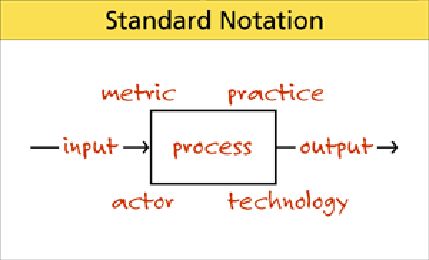Author(s):
Managing Partner & Founder, Knowledge Partners International LLP


I slid the CD into the drive, and clicked the ‘install’ icon on my Windows XP system. The percentage complete indicator showed 5%, 35%, 78%, 91%, 99%, all within the first 20 seconds, and then stood at 99% for about 3 minutes.

IT architectures are merely a reflection of what business units have been requesting for decades. As the business changed, so too did the IT environment. Unfortunately, complex and often redundant data and application architectures can no longer adapt to increasingly dynamic business requirements. Coupled with the fact that the business architecture itself may be ill suited to respond to industry dynamics, it is clear that enterprise architecture realignment must be a collaborative effort involving key business and IT stakeholders.

Ever been to the Ikea? Ikea has starter kits for those that are starting a life for themselves away from home. My cousin, an about-to-be-student, headed to the local Ikea and selected furniture, furnishings and kitchen ‘equipment’. At Ikea, as a starter he doesn’t have to figure out what he needs for his kitchen, he can just buy the starter kit and he will have everything to prepare his daily meals: pots, pans, containers, knives, spoons, and more. It is pretty much the same set I had when I started in college.
Bob Curtice, Associate Researcher for the Institute for Process Management, Babson College and Vice President for Performance with Improvement Associates LLC. Bob Curtice is the author of books and articles on database management, systems planning, and process improvement, including “Fundamentals of Process Management” and “Role of the Process Owner”.
Curtice said that cross-functional business processes yield the most important business results. The processes need to be managed end-to-end in order to achieve benefits for the entire organization.
As I’m exposed more to integration projects I’m seeing two patterns of failure, first the ability to recognize the problem itself and thus understand the solution, and selecting the improper enabling technology and products. In other words, people are leveraging services as a point of integration where information is the proper choice, or leveraging information exchange when services interfaces are indicated.
Understanding these concepts is becoming more important as we move into more service-oriented solutions, including SOAs.

While the days of internet time may have passed us by, the shift in focus to competition based upon the speed of innovation is here to stay. Organizations know that in the new business model, where work can be sent anywhere in the world to the low-cost provider, that one of the key competitive advantages they have is the ability to differentiate themselves with unique offerings. But even these new offerings have a shelf-life as other firms move to quickly imitate innovations.

One of the fundamental promises of BPMS was supposed to be improved business-IT alignment through model-driven implementation. We’re headed in the right direction but the tools and standards don’t completely support it yet.

Everybody has a story like this. You are in the supermarket and you choose what you think is the shortest line to check out. You slowly inch forward. Finally, you are next in line. You are almost out of there.
Oops. One of the items in the basket of the person in front of you doesn’t have a price tag.

Retooling entrenched business processes requires retooling one's information systems. This may involve replacing systems or, in other cases, significantly reworking those systems. In either case, knowledge of the underlying rules that govern those systems is essential...
Everyone starts here.
You're looking for a way to improve your process improvement skills, but you're not sure where to start.
Earning your Business Process Management Specialist (BPMS) Certificate will give you the competitive advantage you need in today's world. Our courses help you deliver faster and makes projects easier.
Your skills will include building hierarchical process models, using tools to analyze and assess process performance, defining critical process metrics, using best practice principles to redesign processes, developing process improvement project plans, building a center of excellence, and establishing process governance.
The BPMS Certificate is the perfect way to show employers that you are serious about business process management. With in-depth knowledge of process improvement and management, you'll be able to take your business career to the next level.
|
Courses
|
|
|
|
Courses
|
|
|
|
Courses |
|
|
Business Architecture
|
|
|
|
Courses |
Certificate
|
|
Courses
|
|
|
|
Courses |
Certificate
|